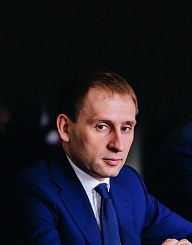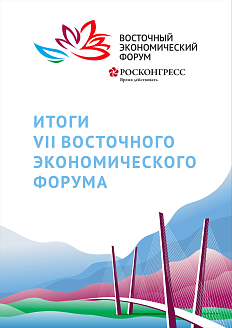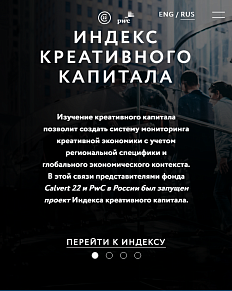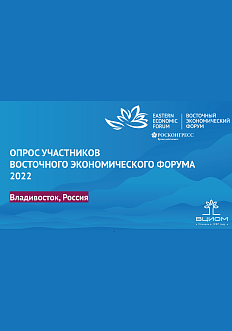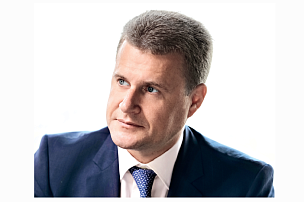Where should the Ministry for the Development of the Russian Far East be geographically located? When will the megaproject to build a bridge from the mainland to Sakhalin be completed? And have you claimed your own free land plot under the Far Eastern Hectare programme? Andrey VANDENKO, a senior interviewer at the TASS news agency, asked Alexander KOZLOV, the Minister for the Development of the Russian Far East, these questions and more, exclusively on behalf of the EEF magazine.
Its easier to manage from the centre thats a fact
Youre a relatively recent arrival to Moscow, Mr Kozlov, but perhaps you already know which building is the capitals tallest? After all, this is a fact known to more people than just native Muscovites.
Do you mean the tallest building in the literal architectural sense or the highest in terms of decision-making authority? If you are talking about the Kremlin, then I can confirm that Ive visited it and attended meetings there.
Im actually referring to an old Soviet joke. Nothing is higher than the KGB headquarters building on the Lubyanka: from there you can see Kolyma in any weather... Of course, since the advent of your Ministry, the joke has become dated. It would seem that you can see even further from your building at 14 Burdenko.
Lets just clarify that our department was not created for the purpose of winning a competition about who has the best view of the remote corners of the country.
Do you think its right that the organization that concerns itself with the affairs of these corners of the country is not a local agency on the ground in Yakutia, say, or Kamchatka, but rather based in Moscow?
Decisions must be made expediently and effectively. It is probably wrong to invest so much significance in a name and to adhere to geographical principles. Decisions should be made with an eye to solving the problems facing the Ministry. We play an active role in the lawmaking process and seek to attract investment to the region. We look for different sources of funding, both from the state budget and outside it (I have in mind investment by state corporations as well as major Russian and foreign investors). The Russian Far East is attractive because it borders the Asia-Pacific region. However, the embassies of, lets say, Japan, South Korea, and China (and all the others) are not located there, but in Moscow. The Ministry of Foreign Affairs, the State Duma, and the Federation Council are also located in the capital, and we work with them on a regular basis. Yes, you can see a lot from a distance, but its better to consider important details from a local vantage point.
It is right that the Ministry is located in the capital. In my opinion, everything is arranged logically. This location is also beneficial for advancing the regional agenda. The laws that are enacted here are implemented there. The funds that are allocated for projects in the Far East go there.
And we maintain a constant presence in these places. We do this to ensure that we have a correct basis for our decision-making and to obtain first-hand information. This allows us to reduce the risk of possible errors before making a final decision.
You didnt mention logistics. To get from one Far Eastern region to another, you often have to fly through Moscow.
This is a separate topic that we can discuss. Its easier to manage from the centre thats a fact.
I recently met with the Japanese Ambassador and discussed a specific project in Amur Region. In order for us to have this discussion, he didnt have to go to Blagoveshchensk and I didnt have to go to Tokyo. The same is true of everything else.
The Ministry does not control the regions. After all, they have their own governors or heads of the republics. They are responsible for everything that happens in their respective regions. Were not trying to stick our noses in someone elses business. Were trying to help. We are drafting laws that will create new jobs, solve social issues, and make life simpler for investors. Therefore, to draw an analogy with the organization of the military, it would be better to think of ourselves as different service branches that are able to act together.
You have to live in the time zone where you are located
Which time do you set your watch by? We are meeting at the beginning of the business day, but its already evening in Magadan. Which time zone do you use for scheduling purposes?
You have to live in the time zone where you are located. We are not constantly focused on the time. We work on legislation on Mondays, and we do project work on Tuesdays. On Wednesdays we check whether enough funds have been raised, and we listen to reports from development institutions, which allow us to gain an insight into how particular areas are developing. On Thursdays we have our weekly briefing, in which the heads of regions take part via teleconference.
Of course, we stay in constant touch with each other. Just before this interview I talked with the Governor of Primorsky Territory, and we discussed current issues. The Governor of Sakhalin called the day before yesterday to warn me that he was flying to Iturup for four days, since the mobile phone coverage on the Kuril Islands is spotty.
When I worked in Blagoveshchensk, people from Moscow would call at inopportune times if circumstances so demanded. Thats the normal state of affairs! I cant imagine another way of doing it.
You need to realize that the earlier the head of the region receives information, the more time he has to respond to it correctly and to prevent or correct negative consequences. This is what we are concerned about, not ensuring that subordinate officials do their superiors bidding.
Then let me ask: how do you divide your time between Moscow and the provinces? How much time do you spend in each place?
Look: during the first two months of my tenure, I spent four weeks in the Russian Far East, trying to visit as many areas as possible: Kolyma, Yakutia, Amur Region, the Jewish Autonomous Region, Khabarovsk Territory, Kamchatka...
My year is divided into cycles. State funding proposals are drafted in July and August. Before this can be done, it is necessary to check the situation in the regions. This fieldwork allows us to plan and know which proposals we need to advocate on 6 September before the Ministry of Finances budget commission. If Im persuasive, then Ill secure funding for next year.
The next stage is to monitor how the allocated state funds are spent. It makes no sense to look at construction sites during the winter. Everything is hidden under a blanket of snow. Hence, the next period of scheduled trips will be delayed until the spring.
In addition, there are events and functions that we must attend, including the EEF among a number of others. International activity is another important topic. So this is how we schedule the calendar for the year.
Here s an example. We have communicated our priorities to the Ministry of Transport. Minister Yevgeny Dietrich wrote a series of instructions. I met with Mr Dietrich, and we made some slight adjustments to the plans.
Its much simpler when you have some understanding of what youre talking about. So this is how the system works. This is how it should work.
Its terribly expensive to fly vegetables to Magadan or Anadyr!
Since we are on the topic of transport... Is the Sakhalin Bridge project going to be built?
We have been instructed on this matter by the President. That means that we are going to build the bridge. However, we cant put the cart before the horse. First, we need to figure out the sources of funding, wait for a concrete engineering proposal to be drafted, and decide on the deadlines and contractors.
The fact that global infrastructure projects in the Russian Far East are needed is not even a discussion. But I am not saying that we should forget about building a smaller bridge over some anonymous stream in a village lost in the taiga. For the residents of such a settlement, a modest wooden bridge is no less significant than the Sakhalin span.
Megaprojects give a powerful impetus to the development of the region. They require support, ranging from cement and fittings factories, where the concrete will be mixed and the metal will be cast, to the food services that are needed to feed the construction workers.
When I was Governor, we began to build a bridge across the Amur River to China. I said to my colleagues: «Why are you focusing on the cost? Figure in the revenue from the severance tax. Estimate how many people will receive work for years to come.»
The construction site for the bridge drew in several cities. Work on the project not only began, it kicked into high gear.
So in the end you were able to build the bridge?
There is about a year and a half left on the project. Well get it done.
Your Ministry was established in 2012. At that time you worked in Blagoveshchensk, where you held various positions at the regional level. You became Governor in 2015. Back then did you feel that the Ministry that you now head could do some good for the region?
How can I explain it? The Ministry set many important and necessary processes in motion. However, federal officials were not always sufficiently clear about the kind of result they wanted to achieve, and the Governors staff encounters and solves problems that are somewhat different. They are more local and specific. Meanwhile, the people who are on the ground are the ones responsible for carrying out tasks. They must understand what is expected of them and, most importantly, why.
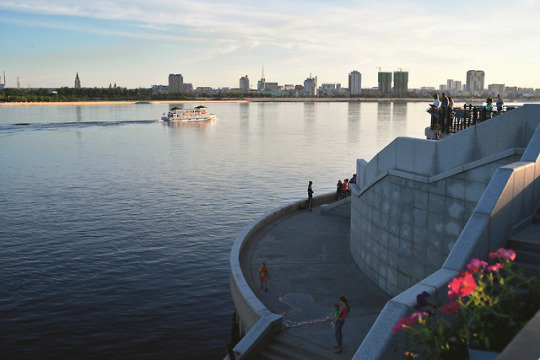
The various levels of government must be aligned in such a way that people understand why the legislative process is necessary and how it will affect their lives. For example, the Ministry is overseeing the construction of 193 social infrastructure facilities. This is a big deal! We are using federal funds to purchase KAMAZ vehicles and other equipment, as well as to build kindergartens and schools... We were able to secure nearly RUB 6 billion in additional funding for these projects in the Russian Far East. Thats great!
Every state programme is currently required to include a section about the Far East. Previously, many ideas did not find their way into plans; they got lost during the drafting process due to trivial reasons. This can no longer happen. Recently, we worked out a programme with the Federal Agency for Tourism. The agencys head, Oleg Safonov, called me: «Your staff are refusing to sign it!» I told him: «Well look into it right now.» It turned out that Kamchatka had been put off until 2021. Kamchatka, of all places! We asked that it be moved up the schedule. They fixed it...
In other words, the Ministry is still functioning as a project office. Back when I used to work at a factory, I was taught: the plan is only 50% of the success. The second half is executing it.
For me, the key issue right now is finding specialists who are capable of leading projects from start to finish. This applies to everything advanced special economic zones (ASEZs), funding, drafting legislation... Some of the processes are hampered by the lack of a regulatory framework, whereas others are stalled by underfunding. In some places we simply need to remove red tape. To accomplish this, we need people with specific skills: construction workers, lawyers, economists, and tax specialists.
Take ASEZs, for example. They have accepted over 1,000 residents, and another 300 have submitted applications. Roads are being constructed, utility services are being extended, and infrastructure is being built. This activity deserves closer examination. We need people to monitor the execution and observance of deadlines, and they must be competent officials. In order to move the process forward from two sides, we need the assistance of the governors teams. Investor activity is frequently regionspecific. Lets say that the responsible local actors did not install gas lines or electricity, and the farmer was not able to start using his greenhouse. As a result he suffered losses, and local residents had no access to fresh tomatoes or cucumbers. And its terribly expensive to fly vegetables to Magadan or Anadyr! The question is not even social, but political.
Theres no such thing as superfluous knowledge, only learning that youve not yet put to use
And have you claimed a free land plot under the Far Eastern Hectare programme, Mr Kozlov?
No, I havent. If you take a land plot, you have to work it. Continuously. If, after a full day of work, the Governor told his wife that he was heading out to his hectare, I think shed propose that he stay there.
Nevertheless, you have set a personal example for improving the demographic situation in the Russian Far East.
Yes, my daughter Alisa is six months old, and Im proud to say that her birthplace is recorded as Blagoveshchensk. I myself come from Yuzhno-Sakhalinsk...
You are educated in two fields: law and mining. Which has been more valuable for your role as Minister?
As you know, theres no such thing as superfluous knowledge, only learning that youve not yet put to use. Of course, for the sake of fairness it should be noted that I did not complete my studies at the Far Eastern Federal University, but I did receive a degree in law from the Academy of Entrepreneurship of the Government of Moscow 15 years ago. Thats my background.
Now to address your question. Theres a good saying: a sensible lawyer always knows where to find what he is looking for. And a mining engineer knows where to dig. Everything should be clear, specific, and transparent. Then you can demand a result.
Communication is another important part of the Ministrys activities. We value the ability to listen to each other and to the regions.
I have long understood that no detail of my work is too small. And the global scope of a project is not determined by the amount of money that has been invested in it. Or rather, it is not determined by this factor alone.
During my time as Governor of Amur Region, I oversaw the opening of four kindergartens. You know, each time I got tremendous pleasure when I, together with the builders, handed over the keys to the principal. Then we would have tea and cake with the teachers... I felt a certain euphoria that I had taken part in a good deed that had brought concrete benefits to people.
My grandmother lives in a village in Amur Region called Raychikhinsk. Once, she was showing me pictures from the middle of the last century, where you can see how poor the place looked. There were no pavements, and there were only direction signs, no actual roads. The only standing houses were those built after the Second World War. Then the region began to actively extract brown coal, and they opened a plant with two open pit mines (Severo-Vostochny and Yerkovetsky). After that the city changed for the better and flourished.
A new period of decline set in during the 1990s.
As Governor, I launched a three-year programme to reconstruct, repair, and improve the streets and courtyards in the region, including in Raychikhinsk. The installed and updated pavements will now be able to provide ten to fifteen years of service. After that, a new regional head will take office, who will also focus on updating the infrastructure using other, more modern technologies, which will surely be developed.
We must remember: we are not the first and not the last, but only the present link in the chain of people who inhabit the Earth. And we should not be shy about getting our hands dirty and examining things on the ground. We must make every effort to ensure that every penny goes where it will bring the maximum benefit. At the national level, there is a need to forge the links together.
Several years ago I brought then Minister of Agriculture Alexander Tkachev to the Agrarian University in Blagoveshchensk. I would be happy to show you around as well. It has a beautiful and historic red brick building from the Tsarist period, though it has been left to fall into disrepair. Mr Tkachev has dozens of specialized universities across the country. There are so many that it would be hard to list them all. I say: they do not take that much money to run if you support and maintain them.
We now have a new Minister of Agriculture, and Im no longer a governor. However, federal funds were allocated to the university in 2018, and repairs are currently ongoing. The renovated building will really add to Blagoveshchensks beauty Thats the trick!
The EEF will, in fact, be your debut at the national level. It will be a test of whether the many links have actually been forged together.
Im not a magician. Nothing can be done in an instant. At this stage I see my task as launching the process of implementing previously adopted decisions and developing a decisionmaking procedure that will not undermine the plans for the Far East that have been proposed by the countrys leadership. We need amendments to laws, monitoring of spending, and to determine which facilities are feasible and necessary...
The Forum is a place to look back over the results of the work that has been completed during the last year. We need to verify which of the tasks that were announced in September 2017 were carried out and which were not. In the case of the latter, we need to know why they were not completed. This process provides a way of reconciling and scheduling tasks. We met, and we discussed, analysed, adjusted, and identified tasks. Thats how we made headway.
Let me remind you that the Far East occupies 36% of Russian territory. The regions contribution to the Russian economy should be comparable in scale. Its the only way!


